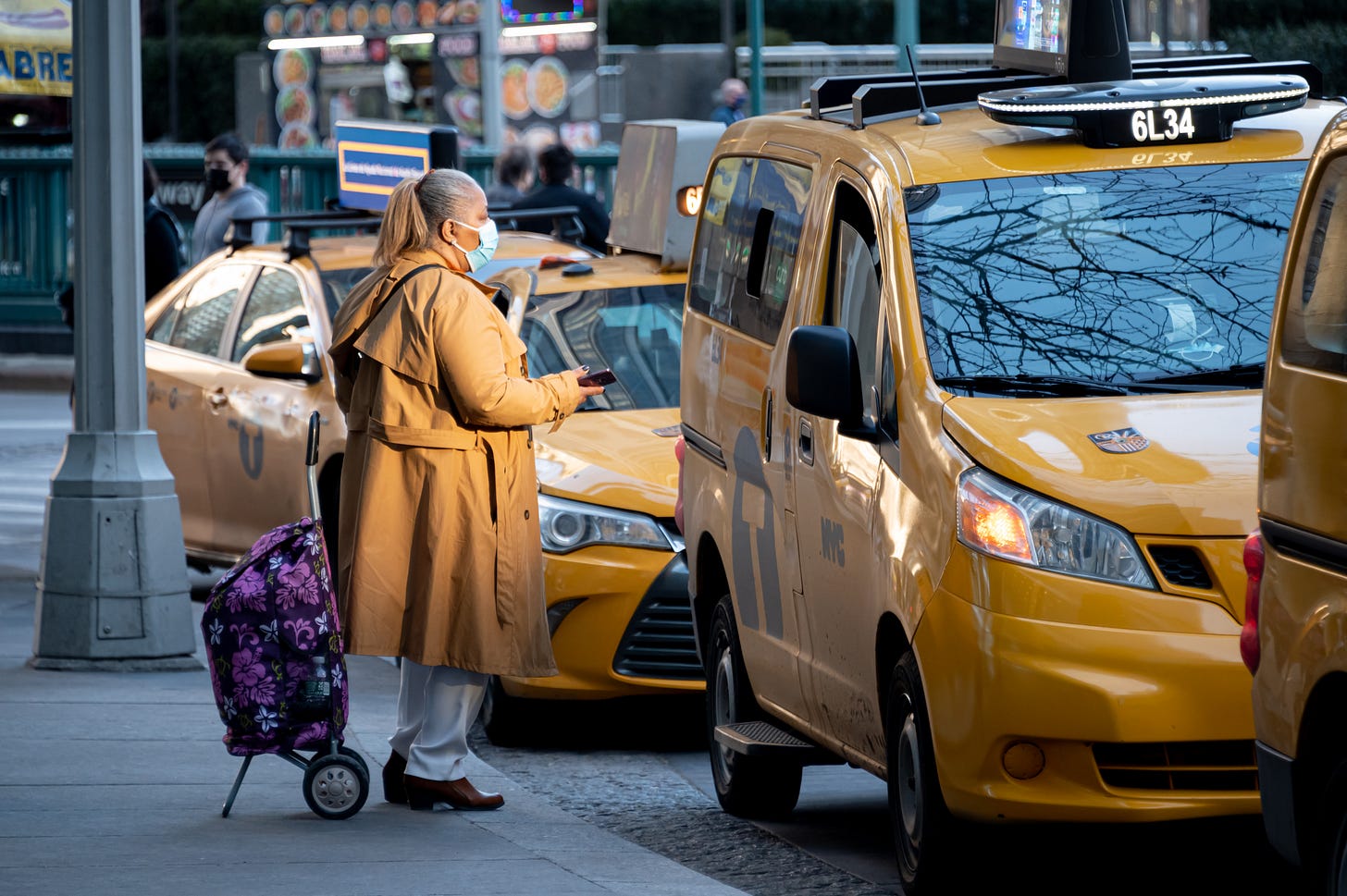Hello and welcome to Oversharing, a newsletter about the proverbial sharing economy. In case you missed it: Oversharing is now a subscriber-supported newsletter on Substack.
As of this week, you can purchase a subscription for a special launch period rate of $7/month or $70/year. Paid subscribers get three posts per week, exclusive access to comments and participation in community threads, and access to the full Oversharing archive. Everything will be free for the first few weeks as we get back into the swing of things. This is a big change after four years of writing Oversharing for free in my spare time, and I couldn’t do it without your support.
Big yellow taxi.
I’m old enough to remember when Uber fancied itself in a political campaign against “an asshole named Taxi.” Ah time, it flies. Last week Uber reached a deal to list New York City taxis on its app in a bid to ease driver shortages and rein in high fares, the Wall Street Journal reported. The deal comes a month after Uber SVP of mobility Andrew Macdonald said at the company’s investor day that Uber aimed to “put every taxi on Uber by 2025,” calling taxis “another huge category and use case that Uber has not historically served well” and “an enormous opportunity.” It’s expected to launch for riders later this spring.
Uber will integrate taxi-hailing software from Creative Mobile Technologies and Curb Mobility, which are used by the city’s 13,587 yellow cabs, to let riders order a taxi from within the Uber app. Per the New York Times, the deal didn’t require approval from city’s taxi regulator, which sets rules for taxis and for-hire vehicles and which has clashed with Uber on many an occasion. Interestingly, Uber told the Journal that passengers will pay roughly the same for taxi rides and UberX rides, which supports my anecdotal observation that taxi fares were cheaper or equivalent to Ubers last time I visited New York. It’s also a tacit acknowledgement that the consumer subsidies Uber issued for years to make ride-hail cheaper than taxis were unsustainable, and that at the end of the day, a private car ride can only cost so little.
Uber tried putting New York City taxis on its app before, way back in 2012. That September, Uber announced it had signed up 105 cab drivers, recruited by Uber employees at airports and gas stations, and would connect them with riders through an UberTaxi beta in its app. The problem was Uber did this without receiving approval from regulators, in the classic fashion of the Travis Kalanick era. Six weeks later, Uber pulled the plug on the service over opposition from the city. Here, for your enjoyment, is a vintage Uber blog post from Kalanick thanking the “UberFaithful” who tried out the taxi beta, the 160 cabbies who participated, and “Joe E.” who “made $586 additional fares with UberTAXI in a week!” Go Joe E!
The covid-era Uber driver shortage is well documented. Getting a ride last year was “next to impossible” in Boston and “almost impossible” in the U.K. Uber fares in New York City were “astronomical,” with one account of an eye-watering $249 trip from midtown Manhattan to JFK airport going viral on Twitter. The driver shortage was widely attributed to drivers leaving ride-hail apps for traditional jobs that offered sick pay and other employee benefits during the pandemic, as well as drivers sticking with the apps but opting to transport food and groceries rather than people. The situation was so dire that in April 2021 Uber announced it would spend $250 million on incentives to get drivers back on the road; a few months later, CEO Dara Khosrowshahi flew to London for 24 hours in an effort to woo drivers back to work.
There’s an obvious irony to Uber turning to taxis as a potential lifeline for its supply woes after a decade of disrupting that industry, not to mention Macdonald calling the deal “bigger and bolder than anything we’ve done.” But bigger and bolder is the innovative spirit! Even when that innovation circles back to where it all began.





Spot on. Just tweeted a chart to you BTW. I am SO glad you are back to ... err.... share Oversharing with us!
Uber's bought one of the taxi apps in Hong Kong, after basically screwing the taxi business with illegal operation for years - Uber still operates its regular ridesharing here with impunity (hard to believe how bold and brazen it is, and how useless the authorities have been in preventing illegal rides), but at least the taxi apop gives some of its rides legality/insurance.